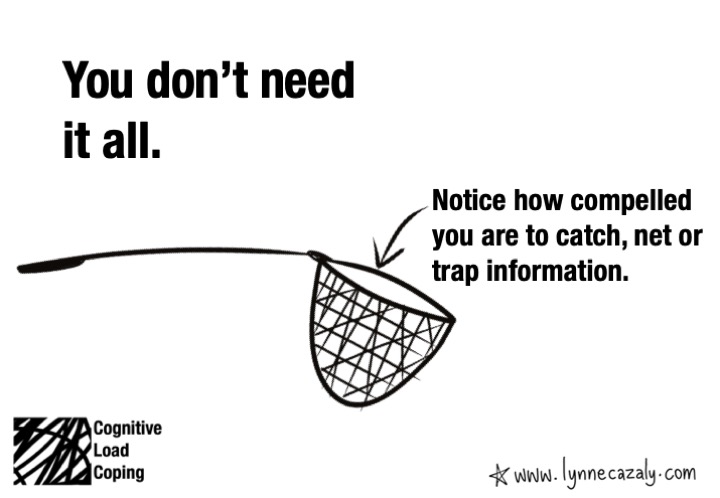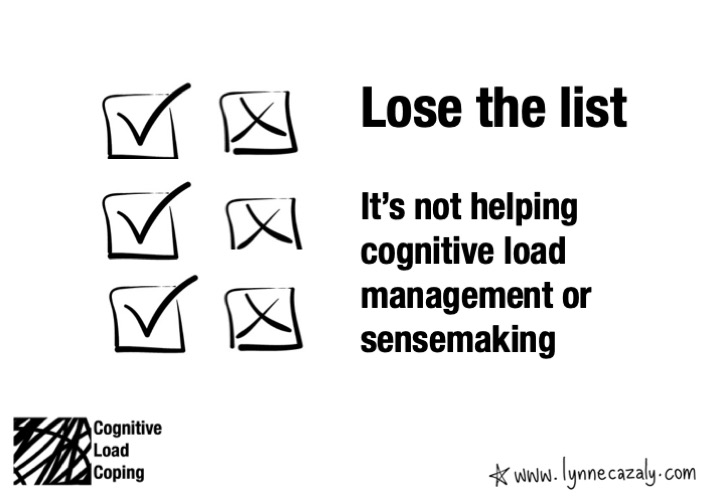But you do need to capture something...
 Tuesday, September 10, 2019 at 4:35PM
Tuesday, September 10, 2019 at 4:35PM  I've called out the information overload behaviour we have of writing too much down in a training program, meeting or at a conference. We don’t need to write it ALL down. But we do need to write something.
I've called out the information overload behaviour we have of writing too much down in a training program, meeting or at a conference. We don’t need to write it ALL down. But we do need to write something.
To all you ‘sponges’ reading this who sit in meetings and conferences thinking you can ‘soak it all up’, without actively capturing any notes... ummm you can't. This is precisely a behaviour that can worsen cognitive overload.
We do nothing, sitting passively, letting information supposedly flow over or through us, thinking we’ll remember it and absorb it. But like all sponges, we fill up - and sooner than we think.
A participant in a workshop sat all day with arms crossed, nothing written down. ‘I can remember it,’ she said, ‘I have a photographic memory.' But she didn't remember it and later showed how she'd missed plenty. Given her leadership role, number of direct reports and her responsibility in the organisation, it was poor role modelling and self-management.
It’s a foolish denial - and a cognitive load coping error - to not write something.
Don’t write everything.
And don’t writing nothing.
But absolutely... write something.





















